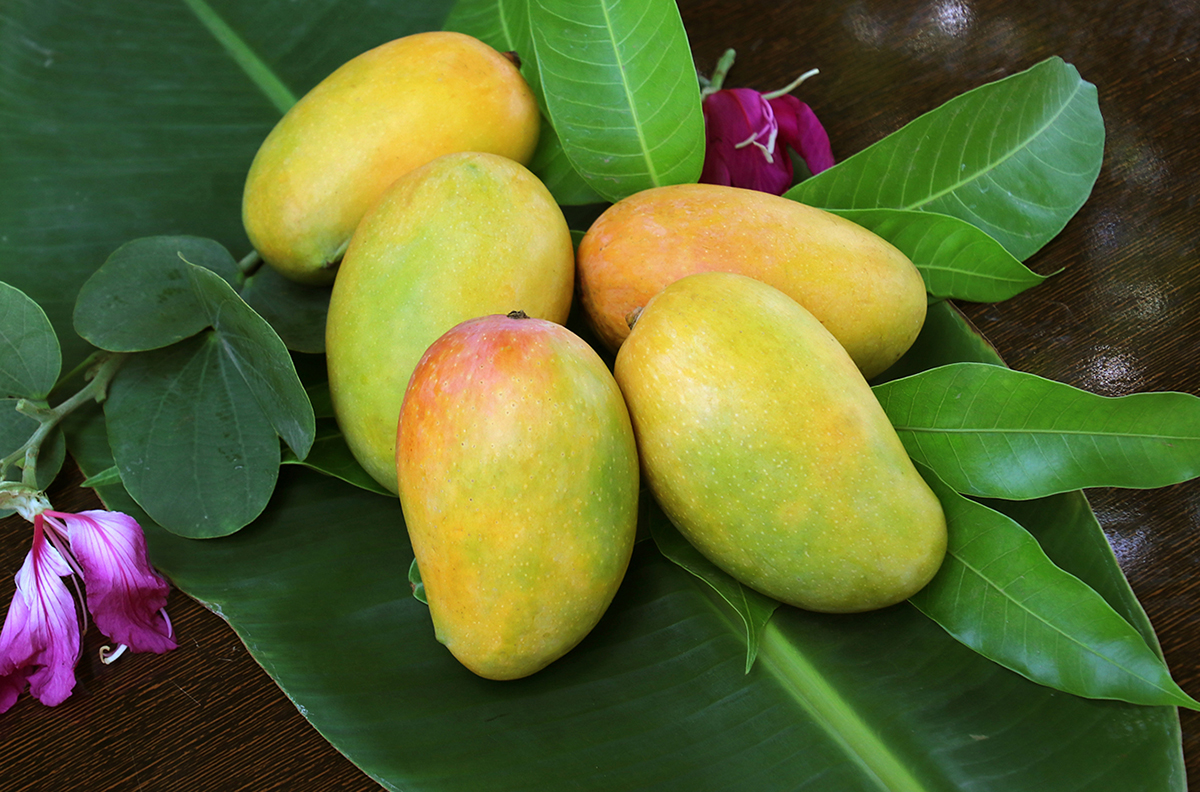There is 99.9 per cent possibilities of getting mangoes at every bus stop in the city of Lagos and other parts of the country because this is its ‘hour’ and everyone should take advantage of that hour.
Mango is no doubt, an appealing and appetizing fruit. And that’s why many are so fond of it. However, there is more to this juicy fruit than its look and taste: it is also loaded with health benefits.
Scientists have reported that extracts of mango have hepatoprotective, anti-diabetic, anti-viral, anti-tumour, as well as gastroprotective properties. They have prominent roles they play in fighting cancer, alkalizing the body, aid in weight loss, help digestion, clean your skin, and make the perfect snack.
Mangoes, botanically known as Magnifera indica (fam: Anacardiaceae) make for one of the most popular fruits across the world. There are hundreds of types of mangoes, each with a unique taste, shape, size and colour. The colour of ripe mango could be yellow, orange or red, while the unripe mango is green in colour.
Consuming mangoes can help protect and strengthen the body in several ways. The sections below discuss these benefits in more detail.
- Age-related macular degeneration
Mangoes contain an antioxidant called zeaxanthin. A 2019 review suggests that zeaxanthin may play a protective role in eye health and could prevent damage from macular degeneration. This is an eye condition that gets worse with age. The review cites the anti-inflammatory properties of zeaxanthin as a possible cause of this protective mechanism.
- Cancer
A 2014 study from Japan found that carotenoid-containing fruits and vegetables such as mangoes may reduce the risk of colon cancer. Also, the Skin Cancer Foundation suggest that a diet high in beta-carotene content can help protect against skin cancer. Orange fruits and vegetables, such as mangoes, contain beta-carotene. They also suggest that it can boost the action of the immune system against disease.
- Diabetes
A 2019 mouse study into mango leaves found that some plant compounds had a powerful effect on risk factors for diabetes. These included lower body weight, reduced blood sugar levels, and lower levels of fats in the blood. This study does not clarify whether or not mango flesh provides the same benefits. However, one 2014 study found that eating freeze-dried mangoes reduced blood sugar levels in people with obesity.
- Heart disease
The fibre, potassium, and vitamin content in mangoes all help keep the arteries working and reduce the risk of heart disease. Increasing potassium and decreasing sodium in the diet are among the most important dietary changes a person can make to reduce their risk of high blood pressure.
- Skin and hair
Mangoes also support hair health, as they provide a good amount of vitamin A. This nutrient helps the skin provide an oily substance called sebum, which moisturizes the hair. Vitamin A is also necessary for the growth of all bodily tissues, including skin and hair. One cup of sliced mango provides 60.1 milligrams (mg) of vitamin C. This is most of a person’s daily requirement, according to the Dietary Guidelines for Americans. Consuming enough vitamin C supports the development and maintenance of collagen. This provides structure to the skin and hair.
- Good source of vitamins and minerals
Mangoes are a good source of vitamins and minerals. They can contribute heavily to the daily requirement for several nutrients, including
|
- Promotes Healthy Gut
According to the book ‘Healing Foods’, mango flesh contains prebiotic dietary fibre, which helps feed good bacteria in the gut. Healthy gut is detrimental for a healthy state. Leaky gut, apart from poor digestion results in skin conditions like IBS, asthma, slow metabolism and other health issues.
- Boosts Immunity
You would be surprised to know that an average sized mango contains up to two-third of the daily recommended intake of vitamin C. The powerful antioxidant helps boost immunity system and prevents cold/flu.
- Aids Weight Loss
Mangoes when eaten in moderation could also help in weight loss. The phytochemicals in the mango skin act as natural fat busters. The mango flesh is filled with dietary fibres. Fibres induce a feeling of satiety. On eating high-fibre fruits or veggies you feel full for a longer time, which prevents you from tucking in other high fattening snacks.
- Lowers cholesterol
Eating mangoes could help regulate your cholesterol levels too. The high levels of fibre pectin may help bring down the low-density lipoprotein (LDL or bad cholesterol) which causes plaques in the vessels and blocks blood flow.
Summary: Mangoes are not only delicious, but also nutritious. As with most foods, however, moderation is key. Sweet fruits like mangoes can have a lot of sugar. But fruit sugar is different from processed sugar because it’s balanced out by fiber and a host of nutrients for the body.
Sweet fruits like mangoes are also a great alternative to junk food and other unhealthy snacks. If you’re craving something sugary, grab some mango instead. Once you start phasing out the junk, you won’t crave it as much. Whole foods are more satisfying, plus they offer many health benefits.
Best of all, it’s tasty and easy to add to your diet as part of smoothies and other dishes.
References: medicalnewstoday, healthline, and NDTV.










